The 14 best players never to play in the World Cup
The World Cup is the pinnacle of international football, providing a stage for the sport's biggest identities to showcase their talents in front of a global audience.
But sadly, some of the world's top players never get the chance to put their skills on display at the tournament. Often it's because the individual represents a country that isn't good enough to qualify. Other times it's because the player is overlooked by his national team's coach. And in some cases, the footballer's life is taken before a World Cup opportunity presents itself.
This year's edition of the tournament will see a number of stars continue the tradition as they watch the action from the discomfort of their homes, waiting on their first World Cup appearance.
Gareth Bale, David Alaba, Arda Turan, Robert Lewandowski, Gylfi Sigurdsson, Pierre-Emerick Aubameyang, Stevan Jovetic, Henrikh Mkhitaryan, Vlad Chiriches, and Mohamed Aboutrika, just to name a few, have yet to feature at the World Cup. And given the birthplaces of these players, some of them probably never will.
Should they fail to reach the Promised Land, however, they'll be joining a star-studded club that's filled with footballers who were just as rich in talent and just as unlucky in international football.
Here are the 14 best players never to play in the World Cup:
14. Valentino Mazzola (Italy)

May 4, 1949 was a dark day in the history of Torino F.C.
While returning from a friendly in Lisbon, 18 Torino players along with 13 other passengers and crew were killed when their Fiat G-212 plane crashed into a hill in Superga, on the outskirts of Turin. The crash was apparently due to poor weather conditions that limited the pilot's vision.
Among those aboard was Valentino Mazzola, captain of the Grande Torino side that is widely considered to be one of the finest Italian teams ever assembled.
Mazzola, who left school at the age of 11 to become a baker's boy after losing his father, was introduced to football when he'd juggle a box of milk on his way to work. He was then given a job as a mechanic at the Alfa Romeo plant in Arese, where he debuted for the company's third-division team.
A few years later, Mazzola led Torino to five consecutive Serie A titles between 1943 and 1949 (the championship was suspended in 1943-44 because of World War II). He was able to excel no matter where he was deployed on the pitch, and former Juventus president Giampiero Boniperti once said he'd choose Mazzola over the likes of Pele, Alfredo Di Stefano, Johan Cryuff, Michel Platini, or Diego Maradona.
The Second World War limited Mazzola to only 12 caps and four goals for Italy. Had the Superga air disaster not happened, he would have undoubtedly been part of the Azzurri side that were eliminated in the group stage of the 1950 World Cup.
13. Matthew Le Tissier (England)
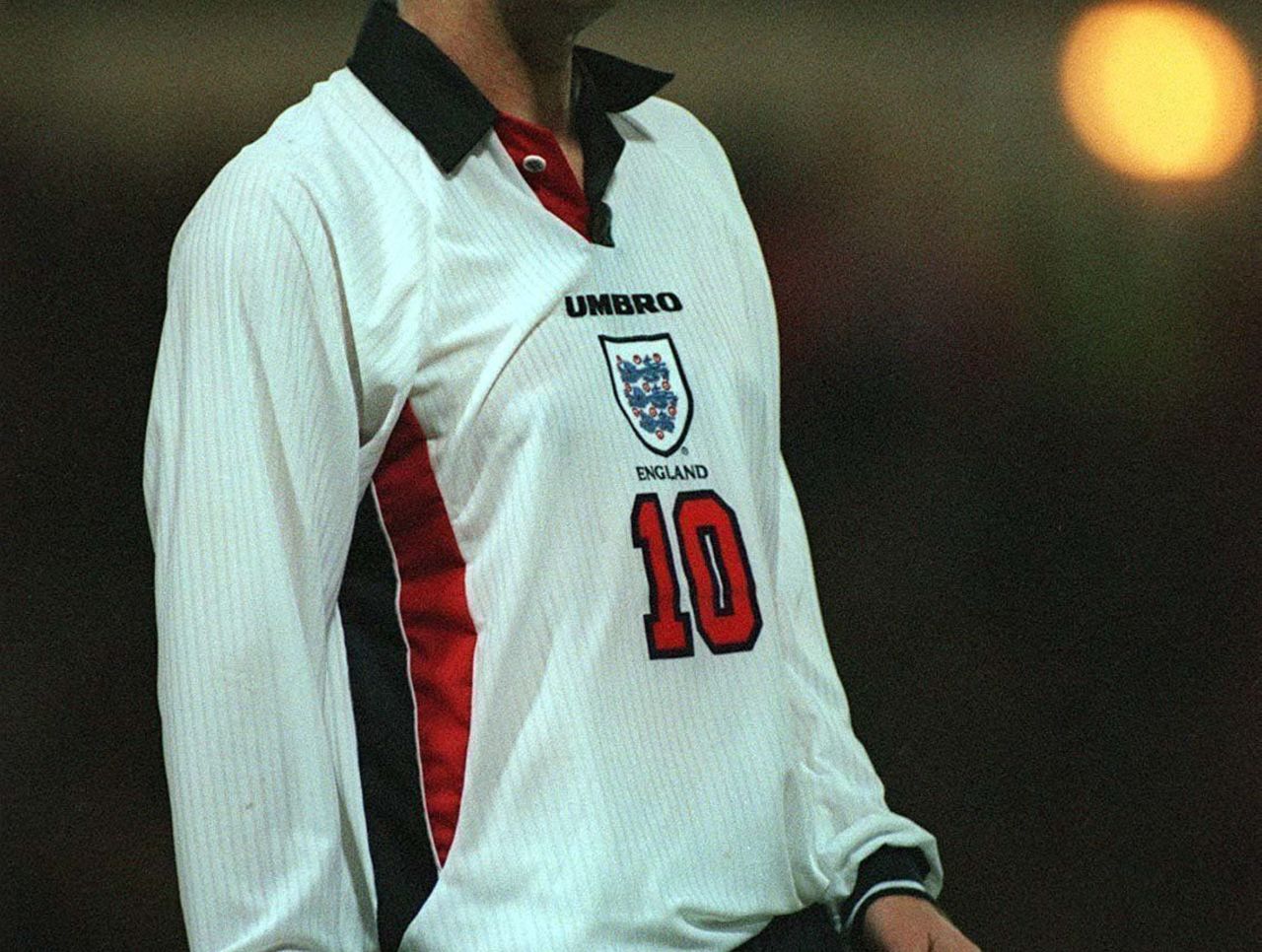
It seems unfathomable that someone who scored 209 goals in 541 games — in the top flight of English football no less — didn't score once for his national team.
But such is the case of Southampton's cult icon Matthew Le Tissier, who was only capped by England on eight occasions.
The Guernsey native carved out one of the most unique club careers that English football has ever seen. Devoting 16 years to Southampton, Le Tissier loved his club so much that he turned down the chance to play for Terry Venables' Tottenham in 1990 and Glenn Hoddle's Chelsea in 1996. By doing so, he was also rejecting the opportunity to play European football.
His insistence on remaining at Southampton likely contributed to his lackluster international career as England managers never seemed fully convinced of Le Tissier's talent. Perhaps it was because his style of play came across as lackadaisical.
"I'm very glad that ProZone wasn't around when I was playing," Le Tissier once said. "There would have been some very interesting statistics about how many yards I ran in a game."
Coincidentally, Hoddle, who had previously tried to recruit "Le God" when he was coaching Tottenham, opted against bringing the striker to the 1998 World Cup in France.
Was it a mistake? Well, let's just say Le Tissier — who converted 47 of the 48 penalties he took for Southampton — would almost certainly have scored in that penalty-shootout elimination to Argentina.
12. Arsenio Erico (Paraguay)
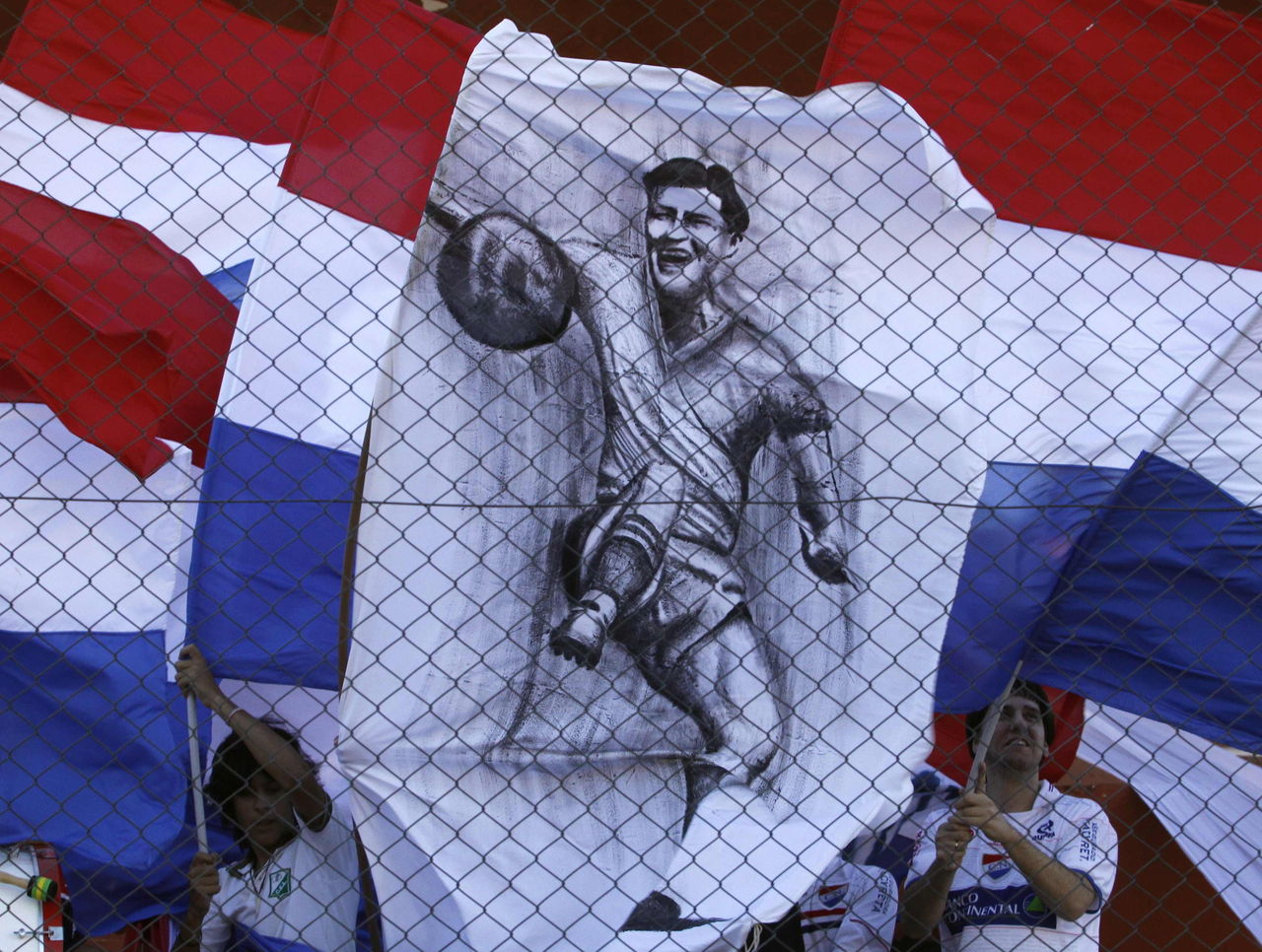
Born in Asuncion, Paraguay, Arsenio Erico was one of the landlocked country's greatest-ever strikers.
His football career may never have taken off had it not been for the Chaco War, which broke out in 1932 over a land dispute between Paraguay and Bolivia. The war led to a number of fundraising friendlies in Argentina, where Erico, who was travelling as a Paraguay Red Cross representative, caught the eye of Argentine club Independiente.
He possessed a soft touch that provided a stark contrast to his large build, and an ability to seemingly float in the air before heading a ball into the back of the net.
Erico went on to spend 13 seasons playing for Independiente, scoring a ridiculous 293 goals in 332 appearances.
In 1938, a cigarette company offered a large sum of money to any player that could score 43 goals in a single season. Erico accomplished the feat with ease, and he even missed some late-season chances on purpose upon finding out that he needed to score 43 goals exactly to claim the prize.
Following the successful campaign, the Argentine Football Association offered Erico a chance to feature for Argentina at the 1938 World Cup. Erico declined what would end up being his lone shot of appearing at the tournament. He was too loyal to Paraguay to accept such an offer.
After his death in 1977, Erico was buried in Argentina, leading to an obvious outcry from the Paraguay public. In 2010, his body was returned to the land of his birth.
11. Jari Litmanen (Finland)
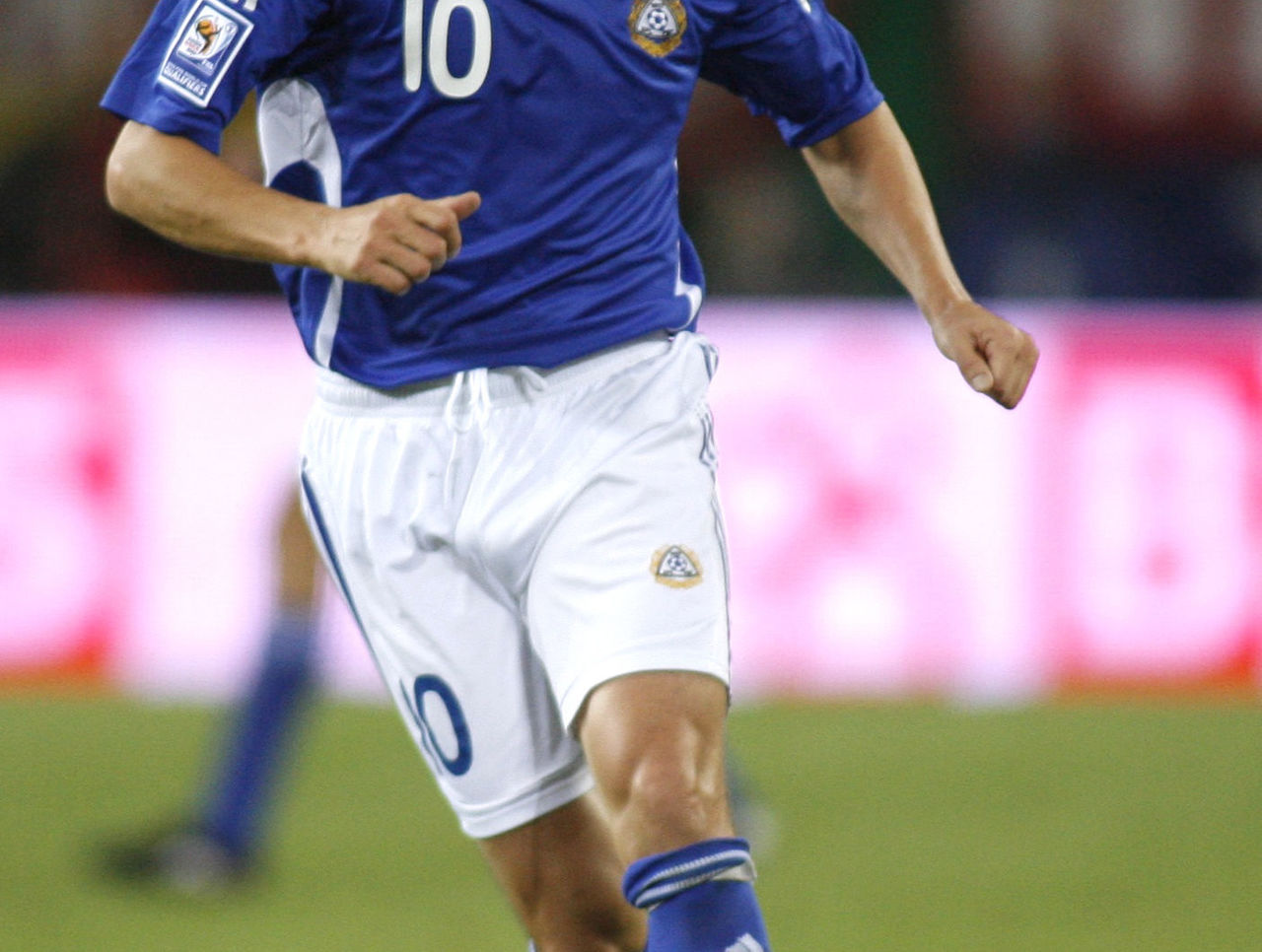
Despite being the only footballer to have played international football in four separate decades, midfielder Jari Litmanen was never able to reach the World Cup with Finland.
Litmanen made his national team debut in 1989, when he was still a teenager featuring for local side Reipas. After five successful seasons in Finland, he was scouted by Ajax, where he made a name for himself as one of Europe's greatest footballers. The 1993-94 campaign, in which Ajax won the Eredivisie, saw Litmanen finish as the league's top scorer with 26 goals in 30 matches.
One year later, he was lifting the Champions League trophy with Ajax. And although the club failed to defend their title in 1996, he scored a goal in the final against Juventus that forced a penalty shootout. Litmanen bounced around Europe throughout the rest of his club career, featuring for giants Barcelona and Liverpool among other teams, before retiring in 2011.
Sadly, Litmanen's club success could never be translated at the national team level. Although he remains Finland's most capped player and leading goalscorer, the closest Litmanen came to reaching the World Cup was in the qualifiers for the 1998 edition, when Finland finished one point shy of clinching a playoff berth that would have seen them play a home-and-away to qualify.
10. Gunnar Nordahl (Sweden)

Before Zlatan Ibrahimovic, there was Gunnar Nordahl.
One of Sweden's most prolific strikers, Nordahl transferred from local side IFK Norrkoping to AC Milan in 1949. The move marked an incredible step in Nordahl's career as he'd go on to become a prolific scorer with the Rossoneri, notching 225 goals in 291 matches. His club record stands to this day.
But bizarrely, the transfer would rob Nordahl of the chance to represent Sweden at the 1950 World Cup in Brazil.
Having been at the heart of Sweden's Olympic success two years earlier, Nordahl was expected to dazzle the Brazilian crowds as he'd done in London. However, ahead of the World Cup, Nordahl was informed that the squad would consist of only home-based amateurs. The same went for Gunnar Gren and Nils Liedholm, who had also signed contracts with AC Milan.
Sweden ended up finishing third in the tournament, and one can only wonder how they would have fared with Nordahl in their squad. After all, Gren once said that Nordahl "would sneak into positions that others would not know existed" and that "he was one of the best players there has ever been."
9. Alberto Spencer (Ecuador, Uruguay)
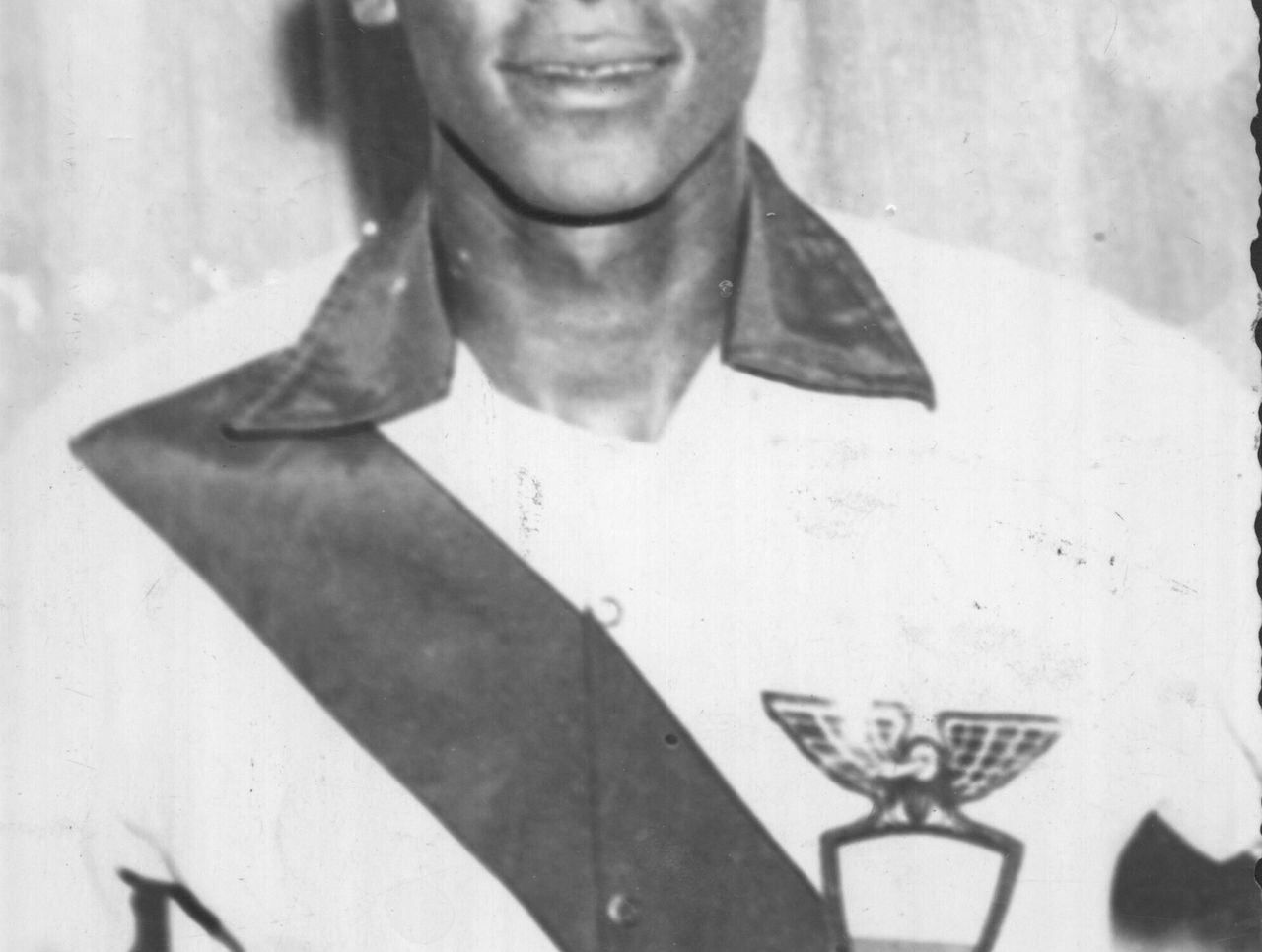
Alberto Spencer was born 64 years before Ecuador would clinch their first World Cup berth, but his club career was among the best-ever by a South American player.
Born in Ecuador to Jamaican parents of English descent, Spencer devastated opposing defenses as a member of Uruguayan club Peñarol in the 1960s. He could rise above any other player in the box, earning himself the nickname "Cabeza Magica," which translates to "Magic Head."
Pele once said: "Someone that headed better than me was Spencer. I was good, but he was spectacular heading the ball. In general, he would do it with a burst, but without actually sprinting."
Spencer's 326 goals at Peñarol helped the club win three of the first seven editions of the Copa Libertadores (1960, 1961, 1966), two Intercontinental Cups (1961, 1966), and seven league titles.
His ruthlessness in front of goal even attracted the interest of Inter Milan, an acknowledgement of just how great he was as crossing the Atlantic Ocean wasn't a common occurrence for players in those days. However, he never left South America.
Spencer only featured for Ecuador in 11 matches, partly because he alternated his national allegiance between his homeland and Uruguay four times during the 1960s. One of his six caps for Uruguay came against England at Wembley in 1964, when he scored and became the first Ecuadorian to bag a goal at the legendary stadium.
He declined an invitation from the Uruguayan Football Association to play at the 1966 World Cup. It was the closest Spencer would get to the tournament.
8. Ian Rush (Wales)
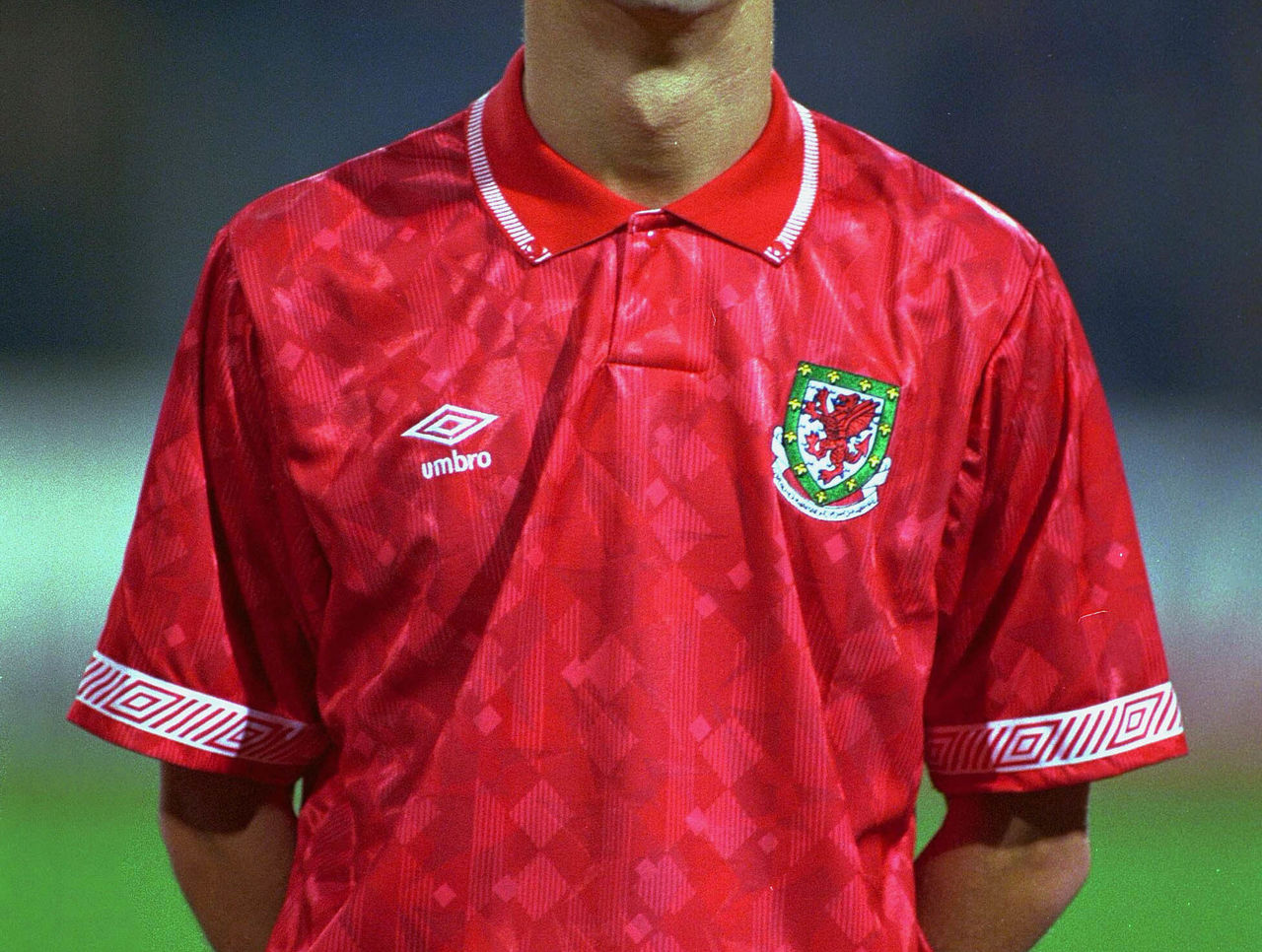
A club record 346 career goals for Liverpool and a glorious mustache couldn't get Ian Rush to the World Cup as he had the misfortune of representing Wales at the international level.
Rush was a creature of the 18-year-box who was always in the right place at the time. For an idea of just how easily goals came for the Welshman, consider that Luis Suarez has netted less than 25 percent of Rush's career goals throughout his three-and-a-half seasons at Anfield.
It was easy to see why the Kop loved Rush so much. Unlike Le Tissier, whose laziness is mentioned above, Rush was a selfless runner who embodied all the qualities that supporters want to see in a star striker.
What makes Rush's absence at the World Cup even worse is that Wales continually missed out on qualifying by the smallest of margins.
Losing 3-0 to the Soviet Union in their final qualifier for the 1982 edition meant that Wales missed out on qualification on goal difference. The 1986 World Cup was a similar story as they conceded a late penalty against Scotland in their final qualifier, drew 1-1, and were eliminated on goal difference yet again. A win would have set up a home-and-away against Australia for a World Cup berth.
But qualification for the 1994 edition may have been the most painful moment of Rush's international career. Taking on Romania in front of a packed Cardiff Arms Park, a win would carry Wales to the World Cup for only the second time in the country's history.
However, it wasn't meant to be. With the score tied 1-1, Wales earned a penalty, but defender Paul Bodin smashed his spot-kick against the bar. Romania then proceeded to score the winner and qualify with a 2-1 victory.
Heartbreaking.
7. Ryan Giggs (Wales)
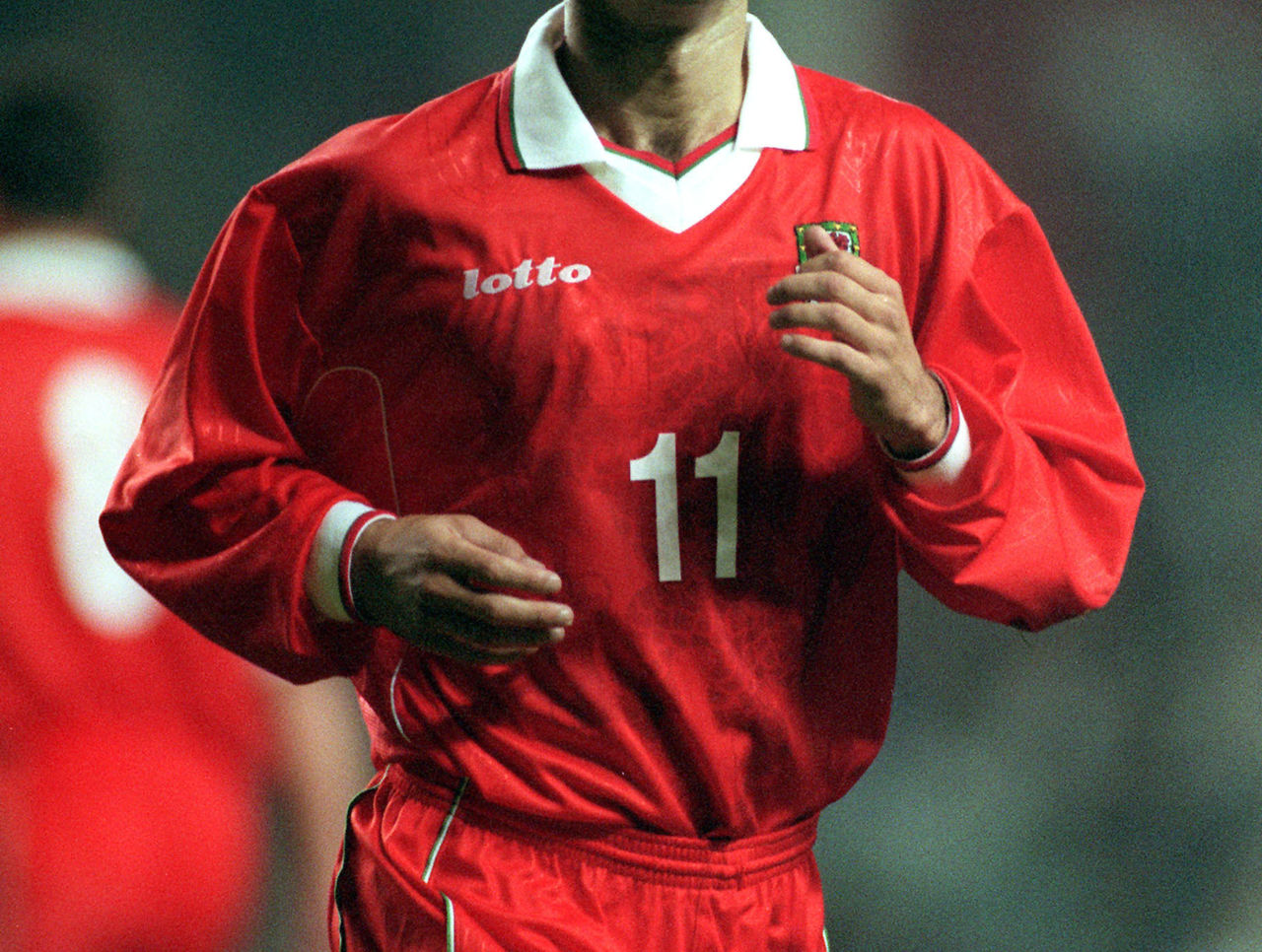
Ryan Giggs, who will be an assistant for Manchester United next season working under Louis van Gaal, is yet another Welshman who was unable to help his home country reach its first World Cup since 1958.
Over his 23-year career at Old Trafford, Giggs demonstrated fierce loyalty to his club as more and more teams began to operate like a rotating door. His 963 appearances for the Red Devils are a club record, and his 168 goals rank seventh in Man Utd's history.
It also doesn't hurt that he won 13 Premier League titles, two Champions League titles, four FA Cups, and four League Cups.
But just like Rush, who he played alongside in the early 1990s, Giggs' international career was limited by representing Wales. He was part of the Welsh side that barely missed out on qualifying for the 1994 World Cup, and the country hasn't come anywhere near qualifying since.
If Giggs still wants to taste the World Cup, however, he can always try taking over as Wales' national team's manager.
6. Duncan Edwards (England)

Duncan Edwards was only 21 years old when he was one of eight players on Matt Busby's Manchester United team to die in the 1958 Munich air crash, which also took the lives of three club officials and eight journalists.
It was a tragic end to a career that could have been one of the greatest in the history of English football.
Edwards was the face of the "Busby Babes," a name given to Manchester United for their radical - at the time - concept of developing young footballers. The Red Devils fell heavily into debt in the late 1940s, and Busby, along with trainer Jimmy Murphy, came up with the idea of creating future stars instead of purchasing players.
From a young age, it was painfully clear that Edwards had a bright future as a footballer. One teacher noted that when Edwards was 11, he could be seen telling all other 21 players what to do and where to be on the pitch, including the referee and linesmen. That same teacher later proclaimed: "I have just seen a boy of 11 who will one day play for England!"
And he was right. Edwards, as complete a player as one could ask for, went on to make 18 appearances for England between 1955 and 1957, notching five goals in the process.
Had the Munich air disaster never occurred, he would undoubtedly have been selected for the England squad that exited the 1958 World Cup in the group stage.
What could have been?
5. Eric Cantona (France)
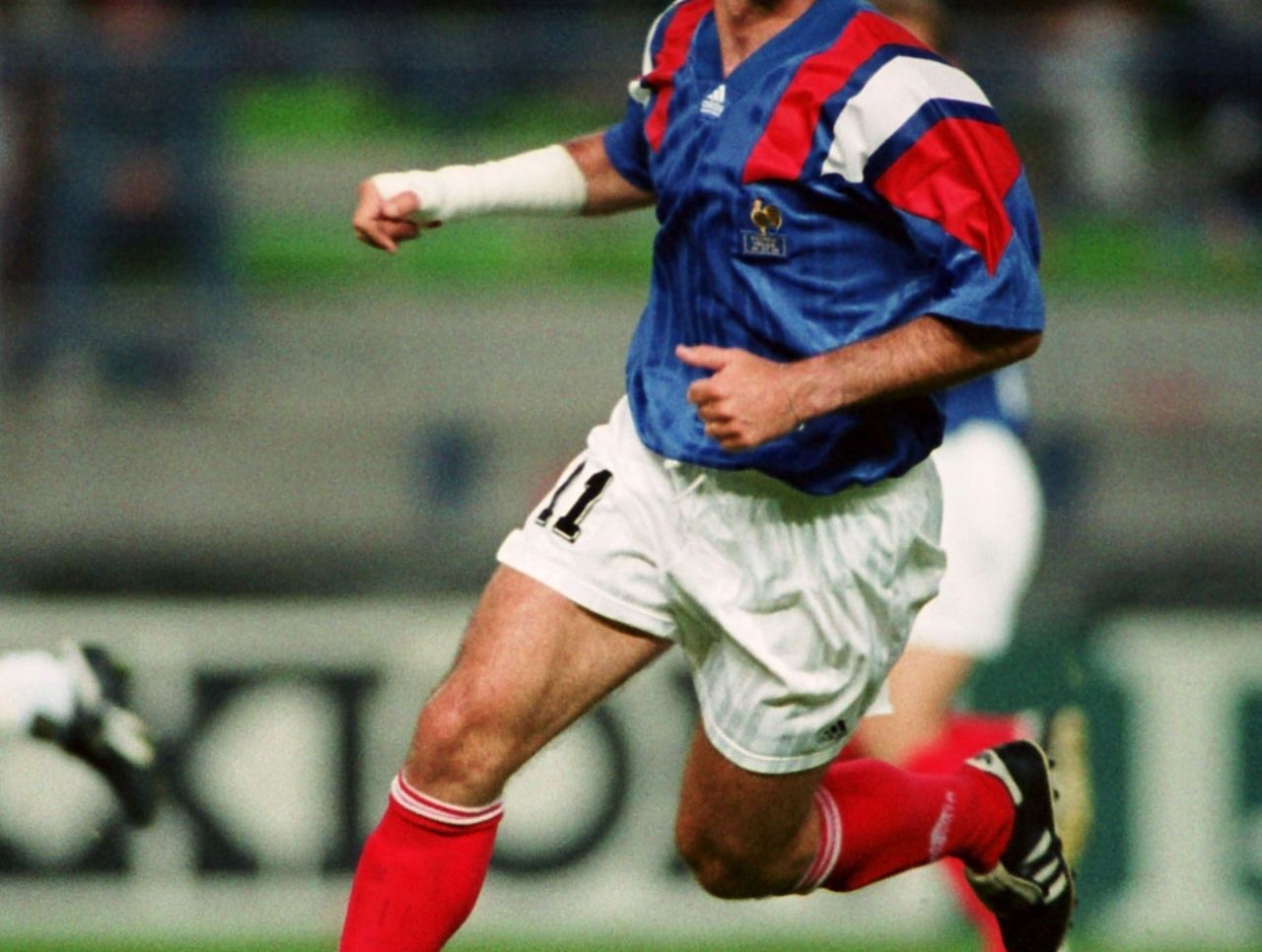
Football's ultimate rebel Eric Cantona is one of the coolest human beings to ever play the game, but he never featured at the World Cup due to what can be explained as a series of ill-advised events and kung-fu kicks.
When September 1988 came around, Cantona had already developed his "bad boy" reputation for punching Auxerre teammate and goalkeeper Bruno Martini in the face a year earlier, and serving a recent three-month suspension for a reckless challenge on Nantes' Michel Der Zakarian.
But things were about to get ugly for Cantona on the international stage too. Upon being dropped by France's manager Henri Michel, Cantona responded by calling Michel "not far from a bag of shit" and referred to the French Football Federation as "idiots." He was given an indefinite ban from the national team that lasted one year as France missed out on reaching the 1990 World Cup.
When Michel was fired in 1990, Michael Platini stepped in as France's new manager and immediately brought Cantona back into the French equation. Platini also helped orchestrate a move to Leeds United for Cantona, something he believed would help the troubled forward get his career back on track.
Even with Cantona back in their lineup, France - now being managed by Gerard Houllier - were unable to reach the 1994 World Cup. A 2-1 loss at the Parc des Princes against a strong Bulgaria side ended their qualifying campaign.
By 1995, Cantona had become something of a God at Old Trafford. He was tearing apart defenses while leading a Manchester United revival that saw the club win consecutive Premier League titles in 1992-93 and 1993-94.
And then the Selhurst Park incident took place...
In 1995, Cantona, who had the world at his feet and had been promoted to France's captain, kung-fu kicked a front-row supporter in the chest during a match between Man Utd and Crystal Palace. The violent outburst essentially killed his international career as he was given an international ban that prevented him from representing France.
Cantona never played for his country again. Once he completed his suspension, Zinedine Zidane had already taken his spot in France's starting lineup. Not even a phenomenal club campaign in 1995-96 saved him.
France went on to win 1998 World Cup, while Cantona went on to play for the country's beach football team after retiring in 1997.
4. Bernd Schuster (West Germany)
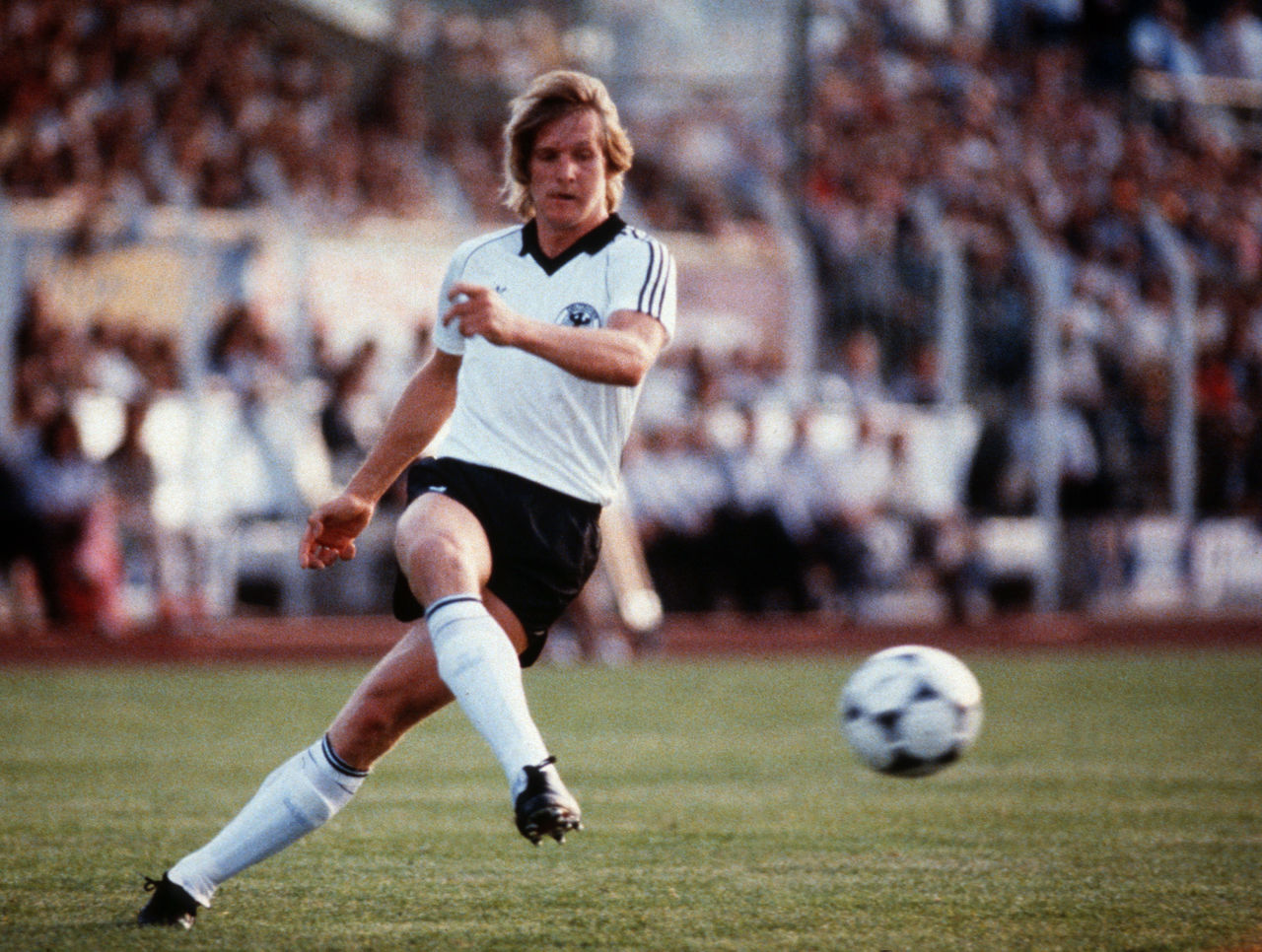
Although his international career got off to one hell of a start, Bernd Schuster never appeared at the World Cup with West Germany.
Schuster sold himself as a midfield prodigy during his first season with 1. FC Köln in 1978-79, leading attack after attack and providing surreal through balls to the forwards in front of him. His excellent form was rewarded in 1979, when he was called up by Jupp Derwall and became the youngest player ever to feature for West Germany.
One year later, Schuster was part of the West German side that would go on to win Euro 1980 in Italy. His best performance at the tournament came in the group stage against the Netherlands, where his play-making skills were on full display as he had a hand in each of Klaus Allofs' three goals.
A European champion at 20, Schuster looked like he had a bright international future ahead of him.
But things quickly turned sour for the youngster. He fell out with his club head coach Karl-Heinz Heddergott, saying "I cannot work with this amateur," and then contemplated a move to the North American Soccer League's New York Cosmos.
While Schuster wisely opted to join Barcelona instead, his consideration of playing for the Cosmos didn't sit well with Derwall, who temporarily dropped him from the West German squad and insisted he'd never play Schuster again if he chose to play "operatta football" in the United States.
Things would only get worse between Schuster and Derwall. Following a friendly against Brazil, the midfielder refused to attend a post-match party because he believed Derwall didn't like him. It was a fair assumption considering the two consistently argued over tactics, and Derwall responded by once again dropping him temporarily from the national team.
Any chance of making amends in time for the 1982 World Cup would prove pointless as Schuster damaged knee ligaments towards the end of 1981 and was unable to recover in time for the competition.
By the time the 1986 World Cup came around, Schuster's international career had already been over for two years, and not even West Germany's new manager Franz Beckenbauer could succeed in forcing him out of retirement.
3. George Weah (Liberia)
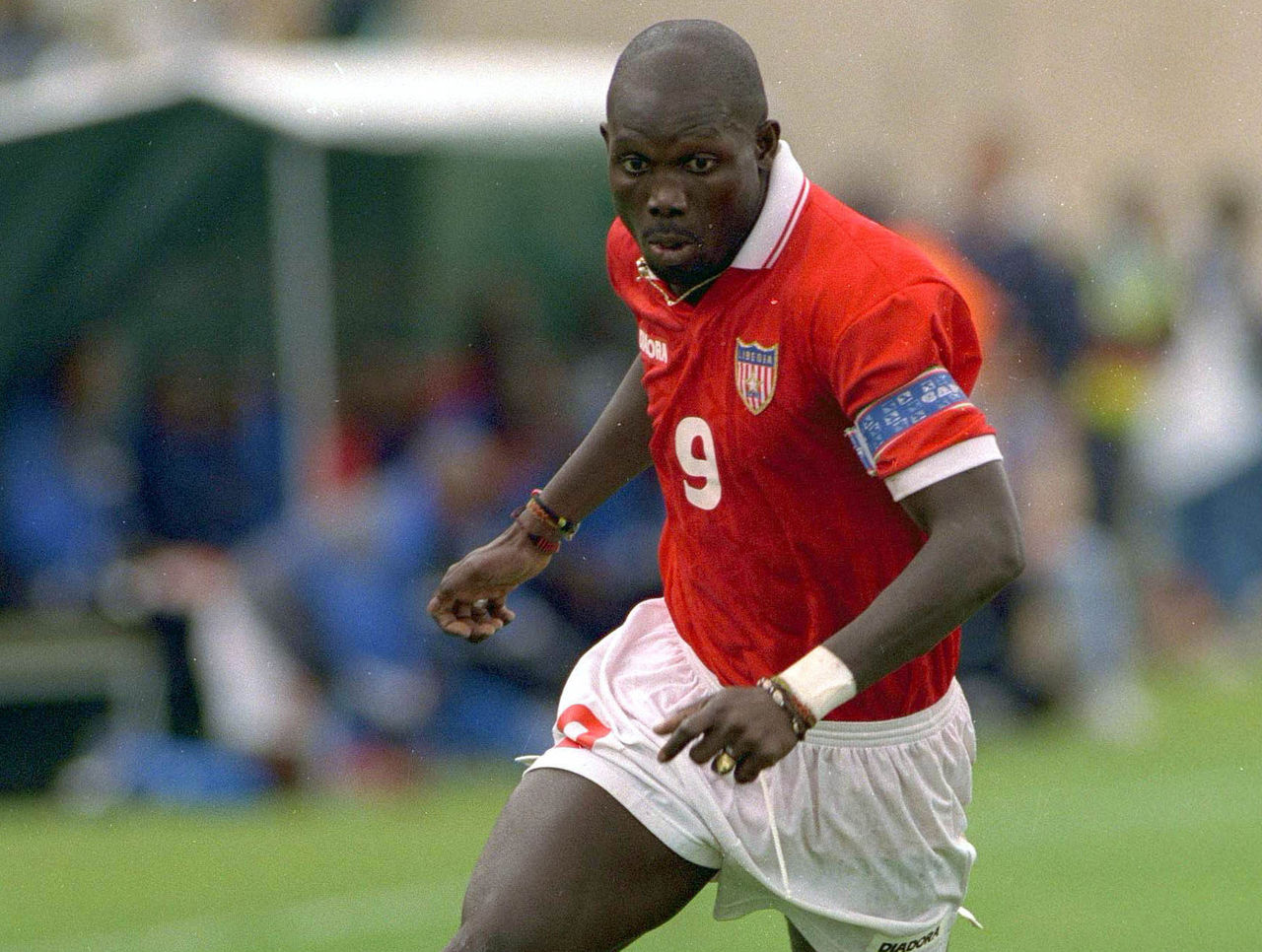
Being born in Liberia, George Weah must have always known that reaching the World Cup would be near impossible.
But the lone star of the Lone Stars deserves praise for just how close he brought his country to qualifying for the editions in 1990 and 2002.
Weah's club career in Europe kicked off in 1988, when his performances in West Africa caught the eye of AS Monaco's then-manager Arsene Wenger. It was shortly after that Liberia's qualifying campaign for the 1990 World Cup kicked off.
Led by Weah, Liberia knocked out Ghana 2-0 on aggregate in the first round of qualifiers and advanced to the second stage, where they'd ultimately finish second in their group behind Egypt. A first-place finish would have seen Liberia play a home-and-away to reach the World Cup. Close but no cigar.
Throughout the 1990s, Weah excelled in Europe in a way that no Liberian player had ever done. By the time the qualifiers for the 2002 got underway, Weah had marked his name down as one of Africa's greatest-ever players.
With Paris Saint-Germain, he won Ligue 1 in 1993-94, was named FIFA World Player of the Year in 1995, and was the top scorer in the 1995-96 Champions League. He then moved to AC Milan, where he led the Rossoneri to two Serie A titles in 1995-96 and 1998-99. For a player hailing from Liberia, such a career seemed unfathomable.
In his last chance at reaching the World Cup, Weah and the Lone Stars missed out on the tournament by finishing their qualifying group one point behind Nigeria. Had the Super Eagles not defeated Ghana 3-0 in their final qualifier, Weah would have been reached the Promised Land.
2. George Best (Northern Ireland)
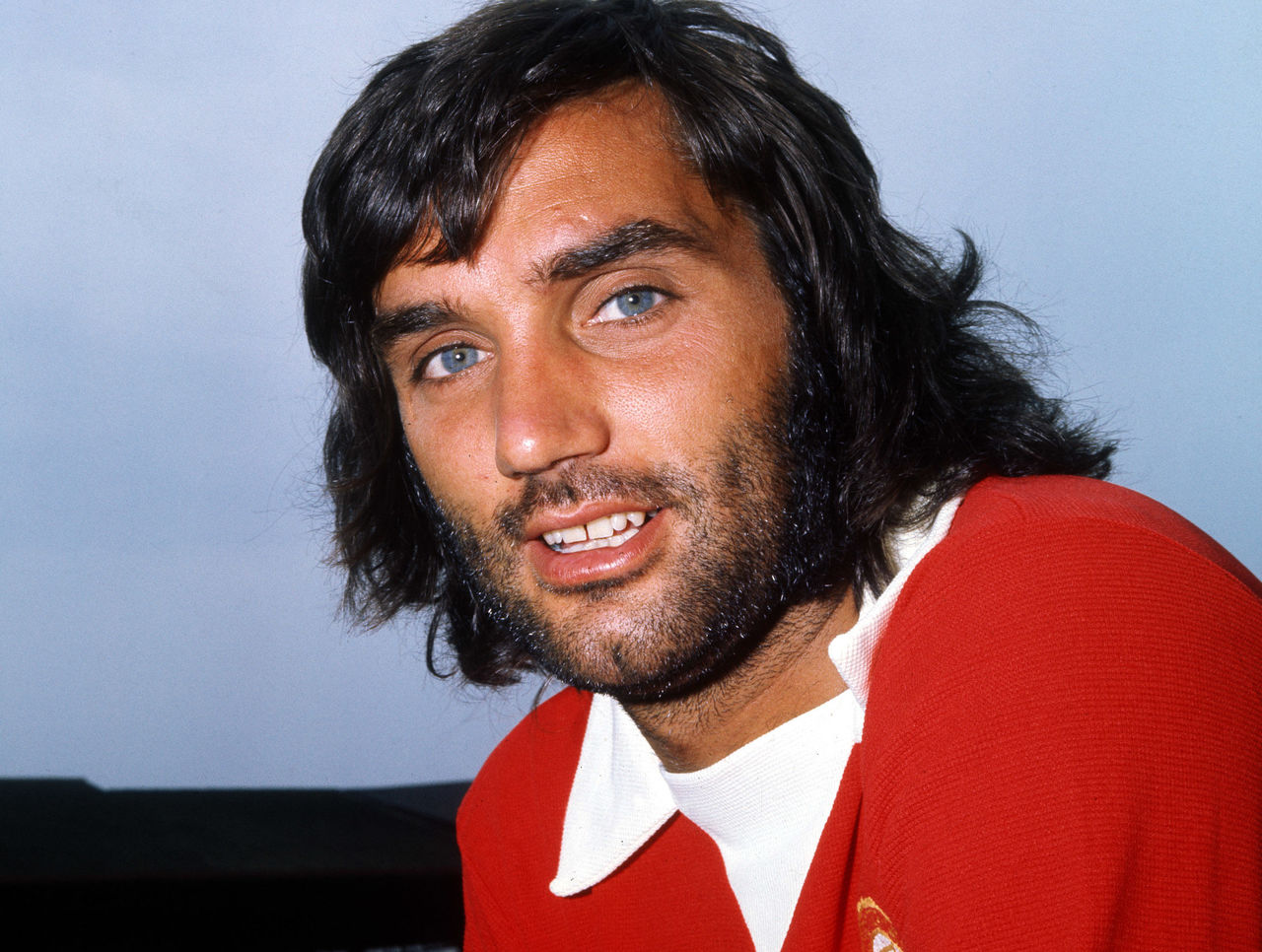
George Best seemingly had it all: a phenomenal decade of club football that marked his place among Manchester United legends mixed with a little bit of drinking, womanizing, and gambling on the side.
Well, a lot of drinking, gambling, and womanizing if we're being honest.
But one thing that eluded Best's career was an appearance at the World Cup with Northern Ireland - not that he cared all that much. Best once referred to international football as "recreation football," drawing attention to his country's minor presence on the sport's global stage.
After joining Man Utd in 1963, Best brought Northern Ireland within a hair of qualifying for the 1966 World Cup. Needing a victory against win-less Albania to force a playoff against Switzerland, who were still fielding amateurs at the time, Northern Ireland only amassed a draw despite an "outstanding" performance from Best.
Four years later, Northern Ireland fell short yet again while attempting to qualify for the 1970 World Cup. The country won its two opening qualifiers, both against Turkey, but Northern Ireland then drew the Soviet Union 0-0 in a match where Best missed a header "which normally he would never miss."
The botched opportunity marked the beginning of a downward spiral for Northern Ireland's qualifying campaign as well as Best's international career. While playing for Man Utd, Best picked up an injury ahead of the reverse fixture against the Soviet Union and missed the crucial match. The Irish Football Association was furious at the Red Devils for breaking an agreement to rest their star player.
Northern Ireland went on to reach the 1982 World Cup without Best, who earned his last international cap in 1977. Manager Billy Bingham considered bringing Best, then 36, to the tournament, but he ultimately decided against doing so based on the player's age and well-documented drinking.
1. Alfredo Di Stéfano (Argentina, Colombia, Spain)

Despite representing three separate national teams throughout his career, Alfredo Di Stéfano never reached the World Cup in what can only be viewed as something of a conspiracy.
Bobby Charlton once referred to Di Stéfano as "the best I ever saw," and anyone who witnessed the Argentina native play would surely agree. Regardless of where he was deployed on the pitch, it was a near certainty each match that Di Stéfano would score at least once. Football has arguably never seen a player look so composed in front of goal.
The beginning of Di Stéfano's bizarre international career took place in the late 1940s, when he left River Plate to join Colombian club Millonarios due to inadequate wages. With no regard for FIFA legislation, Di Stéfano also started suiting up for Colombia.
From a World Cup perspective, the change of allegiance didn't really matter. Both Argentina and Colombia withdrew from the 1950 edition, and the 1954 World Cup saw the former not even attempt to qualify while the latter was banned from competing altogether.
In 1953, Di Stéfano joined Real Madrid, where he'd embark on a club career that saw his shatter a number of Spanish and European records. The move overseas also resulted in Di Stéfano joining Spain's national team (don't ask how or why FIFA allowed the switch).
But even with a squad that featured Di Stéfano, Laszlo Kubala, Luis Suarez, and Francisco Gento, Spain were unable to reach the 1958 World Cup. Their failure to qualify was especially surprisingly Spain were in a qualifying group with Scotland and Switzerland.
Spain would reach the 1962 World Cup, and Di Stefano flew with the squad to Chile. But due to an injury, he didn't register a single minute of action in what would be his last outing on the international stage.
--
Honourable mentions
Jocelyn Angloma (France, Guadeloupe)
Andrei Arshavin (Russia)
Abedi Ayew (Ghana)
Jim Baxter (Scotland)
Yossi Benayoun (Israel)
Dimitar Berbatov (Bulgaria)
Liam Brady (Ireland)
Cristian Chivu (Romania)
Richard Dunne (Ireland)
Darren Fletcher (Scotland)
Bill Foulkes (England)
Johnny Giles (Ireland)
David Ginola (France)
Mark Hughes (Wales)
Sami Hyypia (Finland)
Michal Kadlec (Czech Republic)
Laszlo Kubala (Czechoslovakia, Hungary, Spain)
Kazuyoshi Miura (Japan)
Jose Manuel Moreno (Argentina)
Goran Pandev (Macedonia)
Neville Southall (Wales)
John Toshack (Wales)

HEADLINES
- Turkish federation calls for Israel ban: Soccer 'silent for far too long'
- Trump warns World Cup matches will be moved from 'dangerous' cities
- Trump administration will 'stop any effort' to ban Israel from soccer
- UN experts want Israel suspended from soccer over genocide accusations
- Spain leads FIFA men's rankings for 1st time since 2014